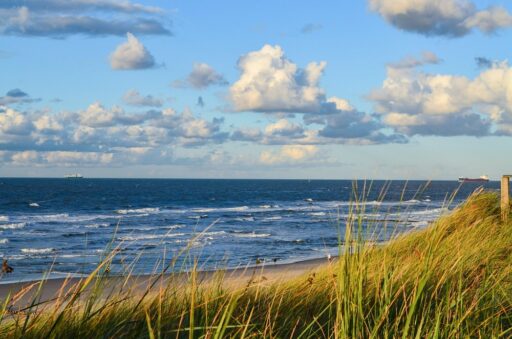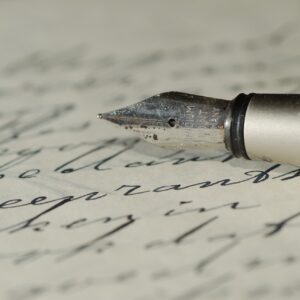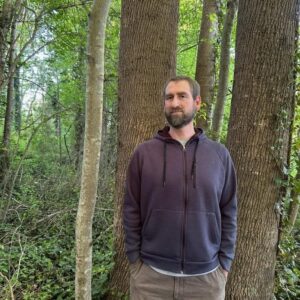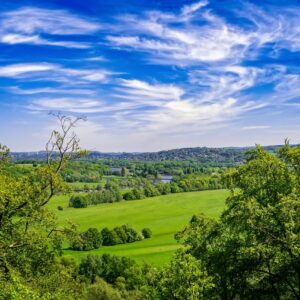I know few who pick books to read according to the master criterion I use: PLACE. People normally decide to read different kinds of books for different reasons, the reason aligning with the kind. I’m attentive to literary form at all levels from diction and syntax up through that of genre—more attentive than I am to whatever ideas (as ideas are usually understood) a work of literature might be said to possess—but my master criterion applies to all kinds of literature because the idea and the sense of place permeates all kinds.
I pick books that I know exhibit a strong sense of place, and sometimes I choose to read something because I know it has to do with a certain city, country, region, climate, or landform. Recently I’ve been reading some literature that I’ve selected for what I can only call—to borrow a concept from quantum mechanics—its geopoetic entanglement. As I work on writing a novel set in the region of the upper Great Lakes, I’ve been looking to read literature set in a similar region.
I say “set in” because it is the conventional phrase, but I don’t really think of literature that way. I think of place not as background but as a governing factor in many works of literature, and I find the idea and sense of place to be far richer and more nuanced than the usual ways of teaching literature and creative writing tend to convey. When teaching fiction I never use the term “setting.” People and place are too intimately connected for me to think of place as mere prop. I find mythos is just as likely to be a function of topos as the other way around.
But back to my particular insanity: where in the world could correspond to the Upper Great Lakes? The Baltic, of course. The Baltic Sea characterizes Europe’s northern tier the way that the Great Lakes and Saint Lawrence Seaway characterize the northern tier of North America. Both bodies of water have an enormous effect on climate as well as social organization, forming a natural boundary as well as thoroughfare. And although the Baltic region lies ten to fifteen degrees higher latitude, thanks to its position on the western periphery of a continental mass rather than being oriented eastwards like the Great Lakes system, its climate and bioregion is comparable to the territory where I live and about which I’m writing by means of fiction.
With the Baltic as with the Great Lakes, if you proceed south you come into a region of great rivers draining southward to warmer bodies of water. Vast forests and agricultural countries ring both water systems. Both were formed by glacial action and are thus relatively new features of the Earth whose natures may shift dramatically as we exchange the Holocene for the Anthropocene. Though the Baltic Sea is 40,000 square miles larger in surface area, its volume is less than that of the Great Lakes. Just as the Great Lakes have been connected to the south-draining rivers by means of the reversed Chicago river, so the Baltic has been connected to the south-flowing Volga by way of canal, and these combined networks have provided routes into the continental interiors: for Varangian (Swedish) settlers who would create what is now Ukraine and Russia and for French explorers in central North America.
And what does this all have to do with literature? For me, it’s quite personal. I mentioned in this space last June that my visit to Washington Island, Wisconsin, and specifically seeing the Stavkirke there, was a kind of epiphany. One thing I realized then was that the time had come for me to write a novel arising from the Great Lakes region. I am by upbringing a creature of the Ohio Valley, as my first novel Absolute Music attests. I’ve lived in the Great Lakes region since 2005 and have by now been converted to the country. I have always known a longing for northernness, and only here, among America’s inland seas, has that longing begun to be fulfilled.
But in terms of reading—that’s where the Baltic comes in. I believe places on earth correspond mysteriously, as disparate parts of the total Mind of the Earth. The climes and bioregions of the world are like the varied forms of literature; but there is some ligature binding distant places that is more profound than those schemes. And so, to understand my own bonds with this country which I have adopted and which has adopted me, I read not only material that has to do directly with the Great Lakes but also diverse forms of writing that reveal to me corresponding places.
As my previous novel had the music of Bach at its center, so this work in progress, my search for a kind of northernness, is involved with the music of Finnish composer Jean Sibelius, and I’ve been reading Erik Tawaststjerna’s three-volume biography of the composer. Along with that I’ve been studying the life and works of the nineteenth century Finnish physician and philologist Elias Lönnrot, compiler of the Kalevala, one of Europe’s last epics, which he shaped into an animistic preparatio evangelica. I’ve also been reading Lönnrot’s collection of lyric poems, the Kanteletar. It seems I will have to learn Swedish better, if not embark upon Finnish, to read the hymns he wrote late in life, so I am also studying his Swedish-Finnish dictionary.
On the other side of the Baltic, I’m reading Poland’s verse national epic, Pan Tadeusz, which is also considered one of Europe’s last epics. And I’ve begun Henryk Sienkiewicz’s sprawling historical Polish Trilogy. Both of these great works of national literature come from the nineteenth century, when the nation in question was unfree. From the same once mighty Polish-Lithuanian Commonwealth I’ve been studying Kristijonas Donelaitis’s didactic poem The Seasons (eighteenth century), the first great work of poetry in Lithuanian, though it was written by a Lutheran minister of the German ruling class.
I’m looking forward to a remarkable (I’m tempted to say fantastical) book, Felice Vinci’s The Baltic Origins of Homer’s Epic Tales: The Iliad, the Odyssey, and the Migration of Myth, since it seems to evince a geopoetics (I took this term long ago from the Scottish writer Kenneth White) similar to my own. With equal anticipation I await Leif Enger’s forthcoming novel—now we are back in the actual Great Lakes country—that sounds like a kind of odyssey, I Cheerfully Refuse.
All this at the end of a winter that has not been winter. The world is changing. Of all the consequences of global warming, the one I consider of greatest import is the one that few discuss: the poetry of the Earth, its seasons and places, is shifting. Though I enjoy my research, I know that I cannot find in old books the northernness of the future, but only a record of what we’re losing.
Jonathan Geltner lives in Ann Arbor MI with his wife and two sons. His translation of Paul Claudel’s Five Great Odes is available from Angelico Press and a novel, Absolute Music, is available from Slant. If you enjoy his posts at Close Reading, check out his new Substack, Romance and Apocalypse, for more frequent and in-depth essays on the places where literature and other arts meet religious ideas and experience.





